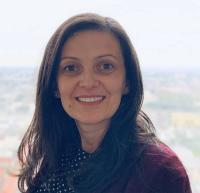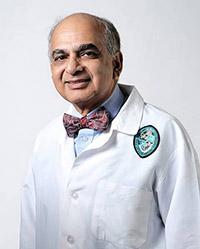
Fellowship Program Director
Endocrinology, Metabolism
and Diabetes

Associate Program Director
I thank you for your interest in our program. I, myself, am a graduate of the Tulane Endocrinology Fellowship Program. I have had the opportunity to see this program as a trainee, program faculty, researcher, associate program director, and now as program director, and I couldn’t be prouder of our section’s dedication to teaching and research. We are proud of the scope of our clinical training, adapting to changes in our clinical practice environment and to feedback from our trainees and educators.
The Fellowship Program in Endocrinology, Diabetes & Metabolism at Tulane University has a rich history of providing our trainees with a robust training platform marked by a breadth of clinical experiences, diversity of patients, and innovative research. This environment provides trainees with a multitude of opportunities to further the advancement of diverse career paths within the field of endocrinology. Although we are a 2-year clinical fellowship, some of our graduates have chosen to incorporate some components of a research pathway. The research pathway activities are targeted to fellows planning to embark on a career in research. For these fellows, the clinical pathway is still the primary emphasis, but we assist them with individualized research projects by assigning a suitable mentor and providing guidance to maintain balance during their 2-year clinical fellowship. All fellows, regardless of their focus, maintain continuity clinics throughout the year and receive the required educational, clinical, and research exposure to become independent Board-certified endocrinologists.
Tulane University Endocrinology Fellowship provides a supportive environment in which fellows assume progressed levels of independence in caring for patients from culturally and economically diverse backgrounds, who present with a broad range of endocrine disorders, including diabetes, lipid, metabolic, and reproductive disorders, osteoporosis, thyroid, parathyroid, pituitary, adrenal disease, and endocrine neoplasia. Over the two-year training period, fellows acquire the practical and procedural skills necessary to prepare them to provide complete, clinical, patient care services, including, thyroid ultrasound and biopsy, dynamic testing, interpretation of bone densitometry, and radioiodine scanning and therapy. Throughout the Program, ethical behavior, cultural competency, safe practice, and proactive burnout prevention strategies are emphasized, as is the impact of socioeconomic factors on healthcare delivery. Furthermore, our Program provides education and mentoring that prepare our graduates to become active participants and future leaders in both clinical settings and academia. We accomplish this by providing advanced training and experience in all competencies including, broad and intensive clinical exposure and teaching, training in and opportunities for teaching and academic presentations, and post-doctoral level training in clinical and/or basic research.
The first- and second-year fellows rotate in each of three affiliate hospitals in four-week blocks, and each site has a distinctive patient population. This first six months of fellowship is slightly more intense than the rest as the fellows navigate several different systems and cross-cover each other on the weekends. The result, however, is exceptional exposure to a broad spectrum of endocrinology and increased comfort level and autonomy with treating more complex cases later in their training. From the start, our trainees are offered and encouraged to select a research mentor. While they continue to improve their clinical skills at their continuity clinics and inpatient sites, they are required to complete a QI project and they are encouraged to extend their work into a research project and present their work to the endocrine communities regionally and/or nationally.
-Dragana Lovre, MD
